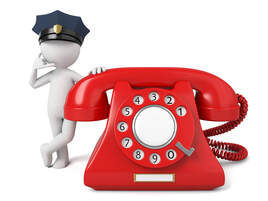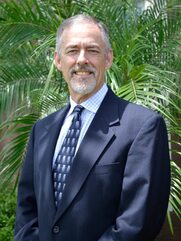 As most of you know, I am a student of anything church safety related. I review almost all articles that come across my email or the web related to the protection of a house of worship. Some of it is good, and at times I try to figure out what was the motive of the writer. Is the writer trying to expand the Kingdom of God or wanting to push the church into something they are not. Many of the church safety experts have never been a police officer, might have some military experience, but most that I have talked with have never seen action or to the layperson were in combat. Time after time again, I see these church safety experts trying to make church safety/security (safety) teams something they are not, which is only going to get someone killed or seriously injured because of poor or improper training. Case in point. An article came through my email called “Drawing the Line on Danger”. This was an article from 2009 that resurfaced from an organization called Church Law & Tax. I don’t know much about the organization or the writers. It appeared that the writer of this article gathered his information from several professionals in the security environment. I could not find much information on the professionals that had contributed to this article. One of the contributors was listed as the founder of Church Security Services but searching the internet, I couldn’t find anything about them. Don’t get me wrong; the article is worth a read except for a couple of things that could someday get a church into some serious trouble. The constant theme in this article is how you, as a safety team member, should handle incidents that could be a possible danger to your church. Never in this article did it say, “Once your Spidey-sense kicks in, you should be on the phone calling your local law enforcement.” In fact, the only time it talked about calling the police was if the situation arose that you had to ask a person to leave. The article states, "Explain exactly what the regulations and the rules are and what they have to do." If they ask why they have to leave, never say, 'because I told you so.' That starts a confrontation. Just tell them they have to leave, or the police will be called." Here is where I have a problem, don’t ever tell anyone “the police will be called.” The statement should always be “the police have been called.” As soon as you sense any danger, the police should already be on their way. If you have a disruptive person in your congregation, before you even start to talk to them, someone on the team needs to be calling law enforcement. We have the luxury in our church of having a dispatch position. That is a position where the safety team member sits in a room with a hardline telephone that if 911 is called, dispatch knows our address without the team member having to give that information. If you do not have a dispatch, designate a person to be the one that calls law enforcement as soon as something starts to happen. We must remember that most church safety team members are volunteers and are not a police officer. If we do not start thinking this way, I feel in the near future, a church will get sued over the actions of their safety team for not calling law enforcement when things started going sideways. Your church gets training from some organization that teaches the things in “Drawing the Line on Danger.” They teach you about a person wearing a long coat on a hot day or a person with a large bag with his hand inside the bag needs to be approached. These are easy but let us do our own scenario. A person comes into your church and wants to talk to one of your pastors. He tells the pastor he is angry at the church because nine years ago, the church asked him to leave due to anger issues. He tells the pastor he is better now but is still upset with the church because he was told to leave during a bad time in his life. He wants to come back to the church and hopes that the church will welcome him back in open arms. So what do all pastors do? He tells him, of course, he is welcomed back (we all know how pastors are), but your sixth sense is firing on all cylinders. You talk to the pastor, and he tells you to watch the person but, we are a church that believes in redemption, so let us give the person another chance. All through the service, you are watching the subject; he can’t sit still, has gone to the bathroom several times, and sweating profusely as the training said. While the service is going on and your team has him under surveillance, you run the person through the internet (we talked about it in the webinar, “Free Online Resources”). You find out he has recently been arrested several times for aggravated battery. You pray that nothing happens, but you know this person can be violent because of his past. Remember, your pastor wants to give him a chance. Toward the end of the service, the subject stands up, pulls a weapon, and shoots at the pastor and any other person near him. Your safety team member, which you put near him, grabs the suspect and gets his gun away from him. Assistance arrives and arrests the suspect. As the dust settles and people are treated, fortunately, no one was killed and only a few minor injuries. In our minds, because of our awareness of the situation, this was a good day. Then the calls start coming in of people that want to sue the church. You ask why? Some attorneys tell you that the injured people feel that you did not do enough to protect them. If you end up in a trial and the attorney looks at you and asks you about the event and why you didn’t contact local law enforcement when you realized the person might be a possible threat. He continues with, “You have been trained in church security, correct? And what did that training tell you”? This article continues to talk about how you must confront the threat, not contact local law enforcement as soon as you think this person is a threat. You, as the safety team member, who has never responded to a "man with a gun" or a "domestic disturbance” call, is going to walk up to a person and confront them because they appear to be a threat? If you start to feel uneasy, I have no problem with you approaching them but understand that dangerous situations happen fast, and before you know it, someone is hurt (look at the West Freeway, Texas church shooting). The article went on to say that a suspicious-looking man walked into one of the contributor's church. The person appeared to be intoxicated, was dirty, and wearing a hooded parka. It also seems that church safety knew he was a retired U.S. Army Special Forces soldier. They observed him, watched him sit down, and promptly nod off. They go on and ask the question, "What's more disruptive—letting the guy sleep or making a scene? You don't make a scene if the person is not disruptive. So, when the service was over, we approached him and said he had to leave. This is where experience comes into play." Not sure how much experience the quoted resources had, but this is really bad advice. Let’s talk about this scenario; no intoxicated person should be allowed in your church, period, that is a disruption. As soon as they realized he was drunk, a minister should have gone to him and asked him to step out of the service to talk. Law enforcement should have been called. You can have law enforcement wait in the parking lot in case all things go perfect, but it is better to have them and not need them than to need them, and they are still a phone call away. In my experience with intoxicated people who wake up disoriented, not knowing where they are or how they got there, they are most likely to become disruptive. Many times, they come out of that “peaceful” sleep, ready to fight. This isn’t Otis of Mayberry. Another thing that bothers me about this story is that the church safety knew he was a retired U.S. Army Special Forces soldier. I have known a few soldiers in the Special Forces, and I can tell you almost all of them are stand up guys. Most I know would not show up at a church dirty, intoxicated, and wearing a hooded parka unless there is a significant issue in their life. Anything from broken family to PTS, this is a cry for help. This person should have been stopped before he got into the worship center, talked to in a supporting way, and should have found him a safe ride home. Think about this, what if he started snoring in the middle of the service? Do you wake him then, with the greater possibility of a larger disturbance because you were being nice and let him come in and sleep one-off? In this story, they woke him up after the service and told him to leave. What if he got into a car and had an accident and killed an innocent person? Some attorney will have a few questions for your church and the actions of the safety team. Church safety and security volunteers are not law enforcement. Sure, you may have retired or even some active-duty officers on your team, but without the proper equipment, as in a bulletproof vest and radios to the cavalry, you are still at a disadvantage. Calling local law enforcement needs to be in every safety team's training. It should be a bullet point in every scenario you train on and written in your policies and procedures. Too many lives have already been cut short due to not having the experts on location. We must be proactive and not reactive. If you have a safety company come in and does not first talk about honoring God and expanding His kingdom or doesn’t say you need to have a close relationship with local law enforcement, I would hesitate to let them do your training. Some companies put on a good act like they care about the church but are that false ambassador in sheep clothing. If your church needs assistance in putting a plan together, considering using our free resources on our webpage as a starting point. These downloads are free. After that, consider having a conversation with me on how to protect your flock within your church with the main focus on the expansion of God’s kingdom and a partnership with your local law enforcement. We used to have a saying on the police department, “we would rather be called and not needed than called after the stuff hit the fan.” Be safe out there and be blessed.
1 Comment
|
AuthorJim has many years of law enforcement experience and has run the safety team at his church for several years. TSA was formed after he realized God's calling when multiple churches reached out and asked him to present at their church. Archives
May 2024
|

 RSS Feed
RSS Feed